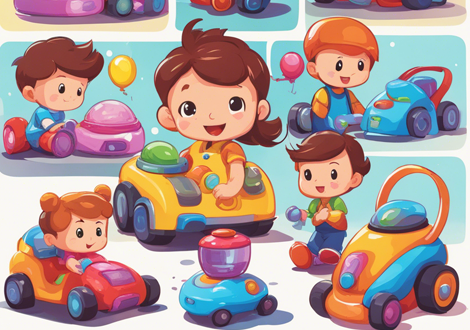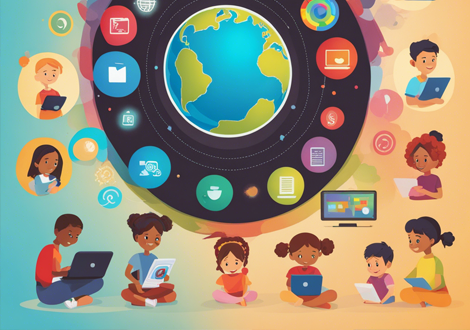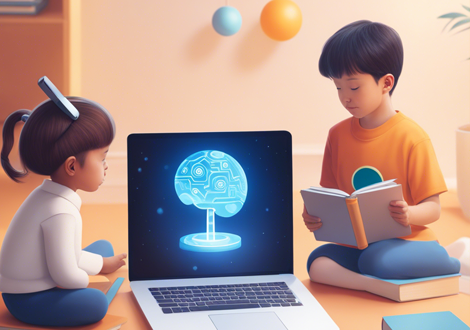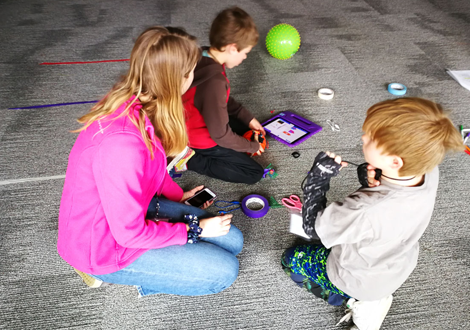hi
I am an Assistant Professor in the School of Design at the Hong Kong Polytechnic University and direct the Little Design Lab. Residing at the intersection of Child-Computer Interaction, Design, and Learning Sciences, my research primarily focuses on studying and designing equitable and playful learning experiences and technologies for young people, investigating the roles that social context plays in supporting such learning, and innovating design research in educational contexts. Additionally, some of my research and design practices extend beyond learning and children's contexts to broader design and HCI research, such as reflecting on design methodologies.
Before joining PolyU Design, I was a Temporary Research Faculty in the Creative Communities research group at the University of Colorado Boulder and once a research intern in the Berkman Klein Center for Internet and Society at Harvard University. I earned my Ph.D. in Information Science from the University of Colorado Boulder, Master's degree in Design from Shanghai Jiao Tong University, and Bachelor's degree in Industrial Design from Zhejiang University.
Selected Projects

Gender-Inclusive STEM Learning Media
Making STEM learning more accessible and equitable for all

Culturally Responsive Learning Technology
Desiging culturally responsive learning media for children

AI Literacy for Children
Promoting AI literacy among young people

Physical Play for Computational Learning
Combining physical play and coding activities for children

Critical Computational Literacy
Cultivating children's critical thinking while learning computing

Joint Media Engagement
Understanding, designing, and theorizing joint media engagement
Leveraging Physical Activities to Support Learning for Young People via Technologies: An Examination of Educational Practices Across the Field [In Press]
Junnan Yu, Tian Xu, Camryn Kelley, Janet Ruppert & Ricarose Roque
Review of Educational Research
Parent-Child Joint Media Engagement within HCI: A Scoping Analysis of the Research Landscape [PDF]
Junnan Yu, Xiang Qi & Siqi Yang
In Proceedings of the 2024 CHI Conference on Human Factors in Computing Systems (CHI '24), Honolulu, HI, USA.
Technology-Mediated Strategies for Coping with Mental Health Challenges: Insights from People with Bipolar Disorder [LINK]
Tian Xu*, Junnan Yu*, Dylan Doyle & Steve Voida (*: Equal Contribution)
Proc. ACM Hum.-Comput. Interact. 7, CSCW2, Article 240 (October 2023), 31 pages. (CSCW '23)
Exploring Computational Thinking with Physical Play Through Design [LINK]
Junnan Yu, Ronni Hayden & Ricarose Roque
In Proceedings of the 22nd Annual ACM Conference on Interaction Design and Children (IDC '23), Chicago, IL, USA.
Family Negotiation in Joint Media Engagement with Creative Computing [LINK]
Junnan Yu, Sari Widman & Ricarose Roque
In Proceedings of the 2023 CHI Conference on Human Factors in Computing Systems (CHI '23), Hamburg, Germany.
Parental Facilitation of Young Children’s Technology-based Learning Experiences from Nondominant Groups During the COVID-19 Pandemic [LINK]
Junnan Yu, Julisa Granados, Ronni Hayden & Ricarose Roque
Proc. ACM Hum.-Comput. Interact. 5, CSCW2, Article 307 (October 2021), 27 pages. (CSCW '21)
A Review of Computational Toys and Kits for Young Children [LINK]
Junnan Yu & Ricarose Roque
International Journal of Child-Computer Interaction, (2019) 21: 17–36.






